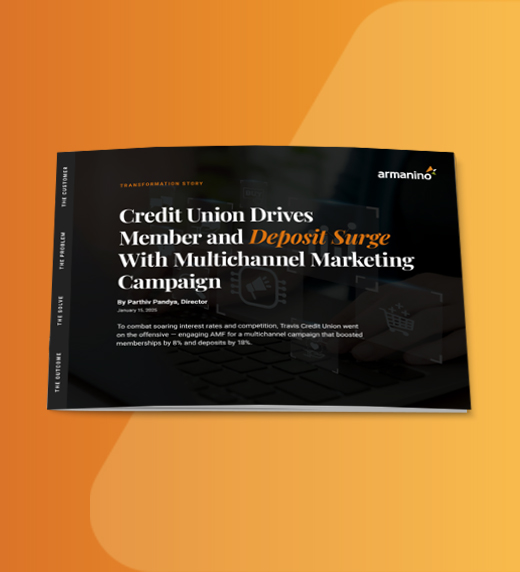
Marketing agency services help organizations of all sizes and industries increase brand awareness, customer engagement, sales and market share by creating cohesive, targeted strategies, messaging and campaigns. These services are ideal for chief marketing officers, marketing directors, chief commercial officers and other business leaders who need to add or supplement a marketing function in their organization.
Marketing agency service providers offer cross-functional, specialized teams who can ideate and implement a strategic, holistic approach for your branding and digital campaigns, public relations and internal communications from start to finish. They can help you make your marketing more effective in a noisy, fragmented market. Services might include:
Provide broad expertise. Agencies either employ staff or use freelancers with specific experience. They build client-dedicated, cross-functional teams that bring invaluable industry knowledge and best practices from prior engagements. This expertise and outside viewpoint can help you create fresh new solutions that achieve stellar results.
Enhance ROI. With advanced technology tools like customer relationship management (CRM) software to collect and assess information, marketing agency service providers can:
Control costs. Marketing agencies can help you control marketing costs by taking on projects that would otherwise require you to hire more employees. Handing off some or all of your marketing project management, analytics and execution also can give you and your team more time to focus on your customers and business goals. Agencies can also bundle services, so you get more value from your marketing budget.
Offer scale and agility. When your business requirements shift, a marketing agency can quickly adapt to meet your changing needs without substantially increasing the cost of their services. For example, if your customer preferences change or you’ve simplified your product offerings, an agency can help you refine your messaging and campaigns to support the new direction. They can also help you ramp up quickly if you discover an unexpected market or time-sensitive opportunity to increase revenue and market share.
Consider budget and scope. Marketing agencies can be expensive. In some cases, an independent marketing consultant may be a better option. Consider what you want a marketing service provider to do and whether a marketing consultant or agency would better fit your needs. The best choice depends on factors like the size and scope of the project or campaign, the amount of time it will take and your budget.
What’s the right type of marketing agency to help you get your product to market, increase your market share, amplify your public perception and achieve your financial goals?
An all-inclusive marketing agency integrates marketing functions, combining strategy, digital marketing and public relations expertise. This holistic approach ensures all of your marketing activities work together to deliver a seamless, satisfactory customer experience. And when the team supporting your marketing is aligned on goals and strategy, you can control your costs and increase your time with customers.
However, sometimes you don’t need the full expanse of services an integrated marketing agency offers. Some agencies specialize their expertise around digital or public relations services. Here’s an overview of the different types of marketing agencies and what they do:
| Integrated Agency | Digital Agency | PR Agency | |
|---|---|---|---|
| Services Offered | Covers almost every aspect of marketing services: traditional advertising, digital and PR | Focuses on online and digital channels (SEO, PPC, social) | Specializes in media relations, crisis management and earned media |
| Target Audience | Broad audience, including mass consumer markets, omnichannel shoppers, targeted niche markets, local and regional audiences, B2B decision-makers, traditional media consumers, influencers, bloggers, thought leaders, industry and trade audiences, internal stakeholders, investors, shareholders and event/experiential audiences | Digital-savvy, online-focused audience such as online shoppers, social media users, search engine users, mobile users, local consumers, B2B decision-makers and content creators | Journalists, media outlets, podcasts, influencers, thought leaders, investors and shareholders, analysts and government or regulatory bodies |
| Communication Channels | TV, radio, print, social, digital, PR | Social media, websites, online ads, email marketing | Media publications, news outlets, press releases, event appearances, radio/podcasts/TV interviews |
| Key Metrics | ROI, brand visibility, cross-platform reach | Web traffic, conversion rates, social media engagement |
Media coverage, brand reputation, crisis management |
| Advantages | Holistic approach, connection across all platforms |
Expertise in digital tools, access to advanced technology and analytics, data-driven marketing | Focus on reputation management, earned media, and often internal audiences |
| Cost | Typically the highest due to wide range of services |
Medium cost, based on campaigns |
Variable, depends on media coverage and reputation needs |
| Best For | Brands seeking a full-service, mostly outsourced marketing function |
Companies with strong digital presence needs, such as e-commerce, retail or B2C brands |
Businesses or institutions with significant public visibility or brand image |
If your internal teams are used to back-to-back meetings and white-knuckling through marketing projects they aren’t experts in, a marketing agency can help reduce the overwhelm. They can transform your team’s day-to-day work, freeing them up to focus on overarching business goals and priorities.
Before you bring on a provider, it’s essential to map out the structure and responsibilities for each team in the client-agency relationship. You’ll want to maintain control of final decision-making and determine the most high-value tasks to hand off to the agency. Here’s a quick overview of what you and the agency do to make the most of this relationship.
It’s easy to get stuck in the thinking that the marketing agency will take on most of the marketing workload. While it’s true that they will do much of the heavy lifting on campaign planning, execution and measurement, the agency needs feedback, direction and access to your team to make the most of your brand and strategies. Some responsibilities you can expect to own as the client are:
The agency typically takes the lead on the actual marketing strategy and campaign efforts. Expect them to handle:
Agencies offer various pricing models, such as hourly rates, project-based fees or retainer agreements. The costs can vary depending on the agency’s expertise, the complexity of the project and the depth of services they provide.
One thing to consider when evaluating pricing is that not all agencies provide the full spectrum of marketing and communications resources in-house. Know where your dollars go because some agencies outsource work like digital marketing or production to freelancers or consultants. They typically add 30% when they pass these outsourcing costs on to you. Look for a marketing agency that not only has specialized services in-house but is transparent about its resources and expenses.
You want to get the most out of your relationship with agency service providers. From our experience working with hundreds of clients who were stuck in one-off marketing ruts, had campaigns in disarray or needed to improve marketing measurement and ROI, we’ve developed some best practices for working with a marketing agency.
Your competition is fierce, and the right marketing agency services can help your business capture market share and generate sustainable growth. Find out how our omnichannel marketing agency services can deliver you winning marketing strategies and measurable results.
AMF is ready to be your hands-on solution. We’ll analyze your needs and market realities — and execute everything from one task to a complete integrated campaign. Let’s connect and make your marketing and communications happen.


